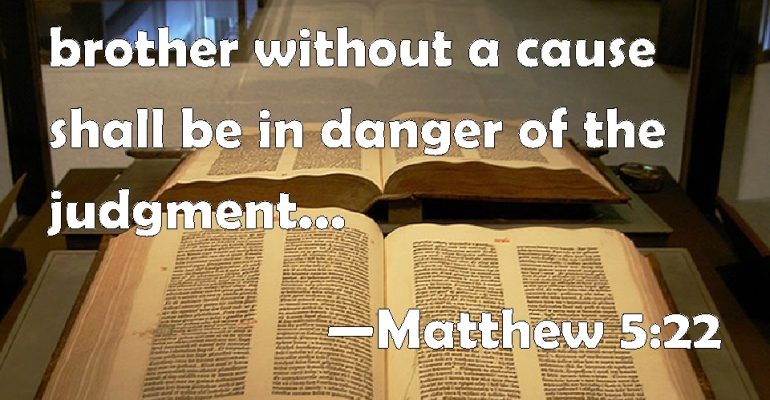THE HYPOCRISY OF THE CHURCH IMMANENT
December 6, 2017 2023-04-05 19:11THE HYPOCRISY OF THE CHURCH IMMANENT
THE HYPOCRISY OF THE CHURCH IMMANENT
Just as any institution has its fair share of concerns, issues, criticisms, and shortcomings, the Church as an organization contains within herself a political system. The secular world often cannot notice the inner workings of the Christian Church, but when it does, a storm sets in. When church leaders comment on a controversial subject, butt heads, or when they perform some scandalous action, the entire world is aware of this; eventually, ecclesiastical drama unfolds.
We have all been a part of such ecclesiastical drama. We saw this drama when a pastor we knew well was caught in an affair, or when a deacon was caught slipping money. The sad reality of Christianity is that it is not just an ideal or an organization; rather, it is a vast connectedness of people who confess a mutual faith. The human factor of the people of God renders the organizational nature of the Church to, at times, falter. While this faltering is an unfortunate aspect of the Church, it is too often assumed that issues and concerns hounding the Church are the fault of Christianity rather than the actions which Christianity warns will be inherent in the world.
Until the grand eschaton, there will always be shortcomings and failures within the body of Christ. We are not Jesus who was a perfect man; we only want to be like Him. These ecclesiastical issues, however, will always be at the forefront of secular scrutiny and criticism, for “to whom much has been given, much will be required; and from the one to whom has been entrusted, even more will be demanded,” (Luke 12:48b NRSV). These words are from the Apostle Paul and they initially referred to men’s responsibility before God in relation to their understanding of truth. However, I believe that the words also extend to how the world views the Church. To the secularist, Christianity holds people to a higher moral ethic, to a greater social standard; therefore, any shortcomings should be answered with derisive criticism and ridiculed. “Christians are hypocrites,” the secularist might say. He might continue, “They claim to be holy and to perform good works, but this proves that they don’t practice what they preach.”
The only response a Christian can offer to a retort like this is a resonating, sympathetic, solemn agreement. Christians are necessarily hypocritical; accordingly, the Church teaches that even unholy thoughts are punishable by hellfire. However, not a day goes by when we do not call to the forefront of our desire some form of lust, greed, or wrath. But what the secularist does not understand in his criticism is twofold. Firstly, the Christian faith cannot be derived from the actions of a few. When someone does this, he or she himself or herself is guilty of judging the ontological nature of the whole Church, which is terribly unfair and illogical. Secondly, he fails to recognize that the failures exemplified allegedly by holy men are the reason why Christianity proclaims the need for a perfect savior: Jesus Christ.
Not one of us will ever achieve utter perfection in this life. Christianity teaches this point most profoundly. The Church teaches that “the righteousness of God through faith in Jesus Christ [is] for all who believe. For there is no distinction, since all have sinned and fall short of the glory of God,” (Rom. 3:22-23 NRSV). Christians are supposed to acknowledge their moral deficiency and imperfections, including atrocities committed by prominent Christian individuals. What comes with this recognition of our diseased moral nature is the consequence of such atrocities, which is death (Ps. 145:20; Matt. 25:46; Rom. 6:23).
Christianity teaches that although moral deficiency is inevitable—even within Christ’s body, Christianity itself is still held accountable before God. “God is not mocked, for whatever one sows, that will he also reap,” (Gal. 6:7 ESV). When one so much as curses at his brother, Jesus warns that such an action of wrath holds one “liable to the hell of fire,” (Matt. 5:22). When we are completely able to understand Christian hypocrisy, then the consequences of our sinful nature, like death and damnation, can be remedied. Similarly, when we understand our failure to perfectly obey God’s commands, then we can come to Christ in repentance. We can offer to Him our lives. Because of the reality of sin in the world, we can comprehend and accept the gospel.
Allow yourself to be an empty space for God to move and to minister to other people. Be equipped and sign up for this FREE Course and experience the Power of Prophecy to open up your mind to what God is doing in your life right now!
Reflect on this. What are you sowing in your life right now that you will inevitably reap?












